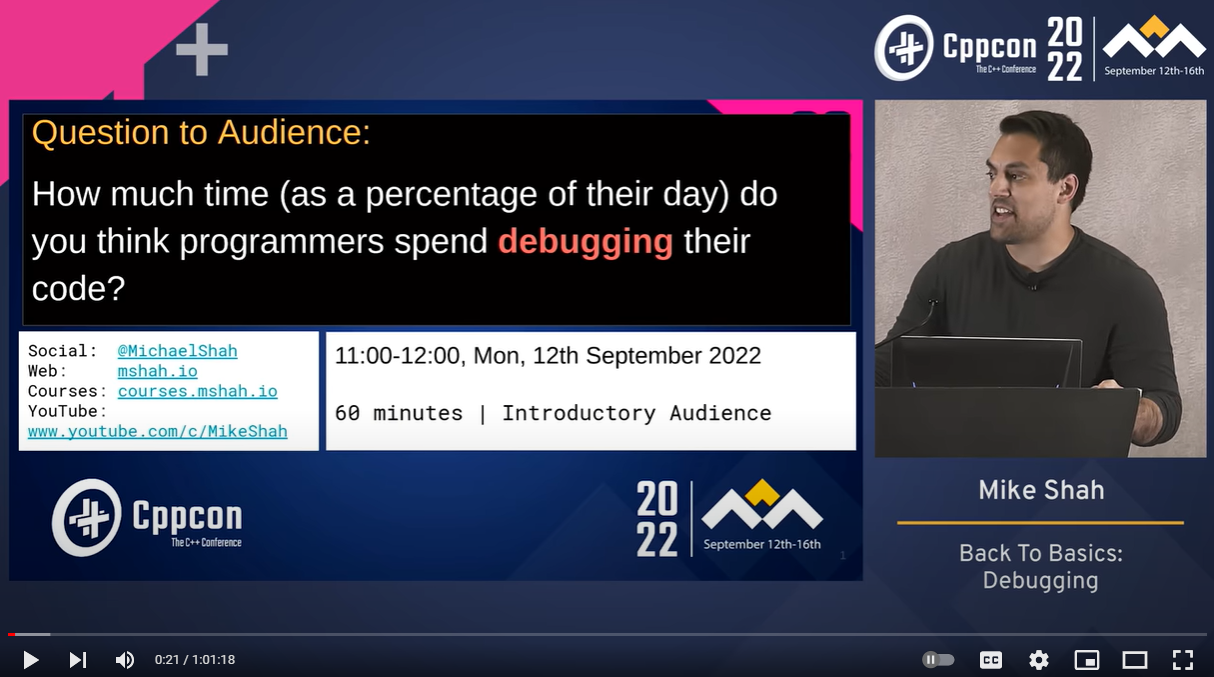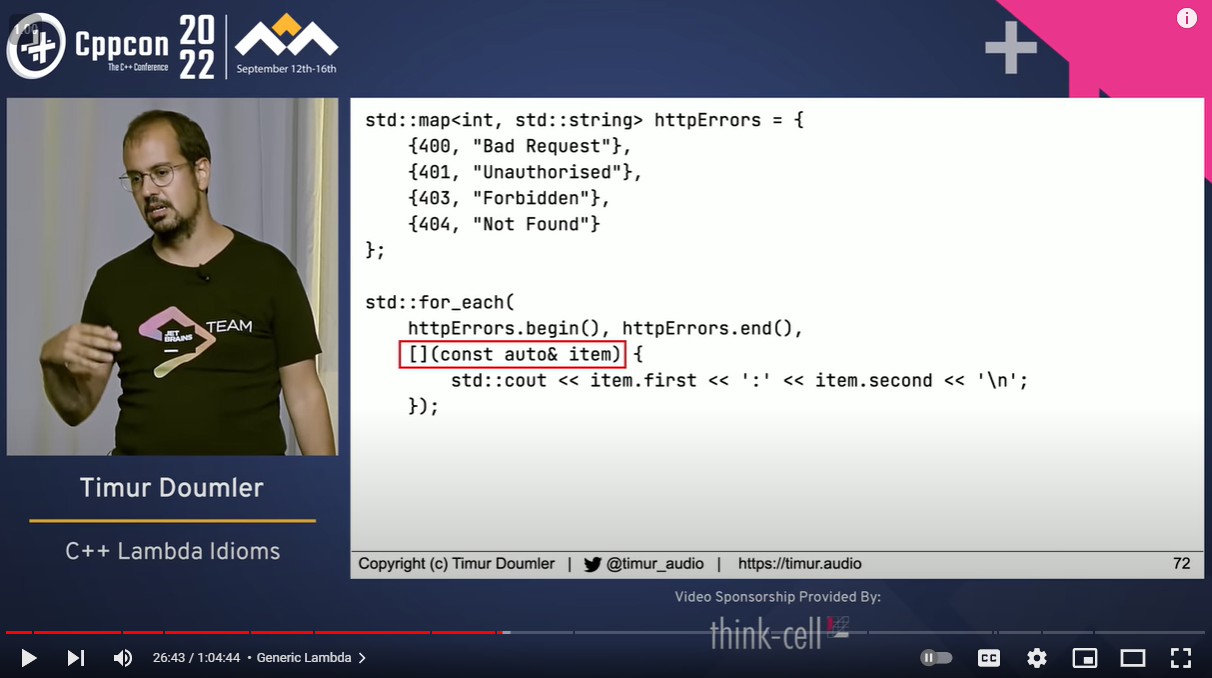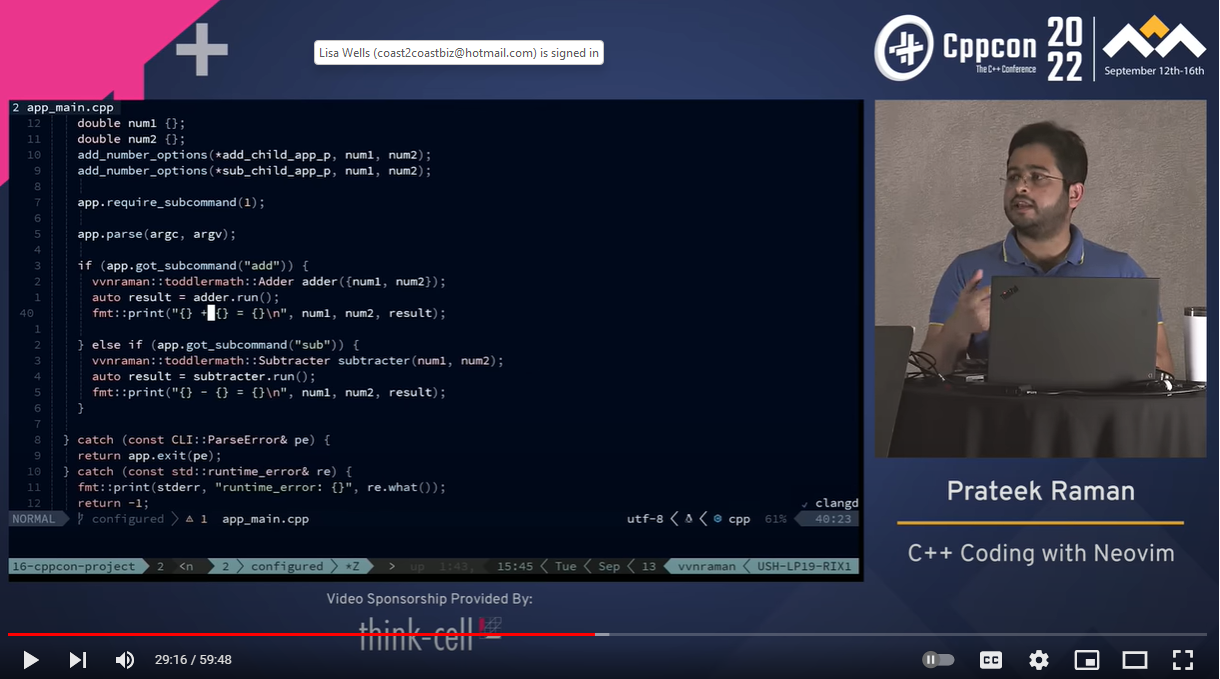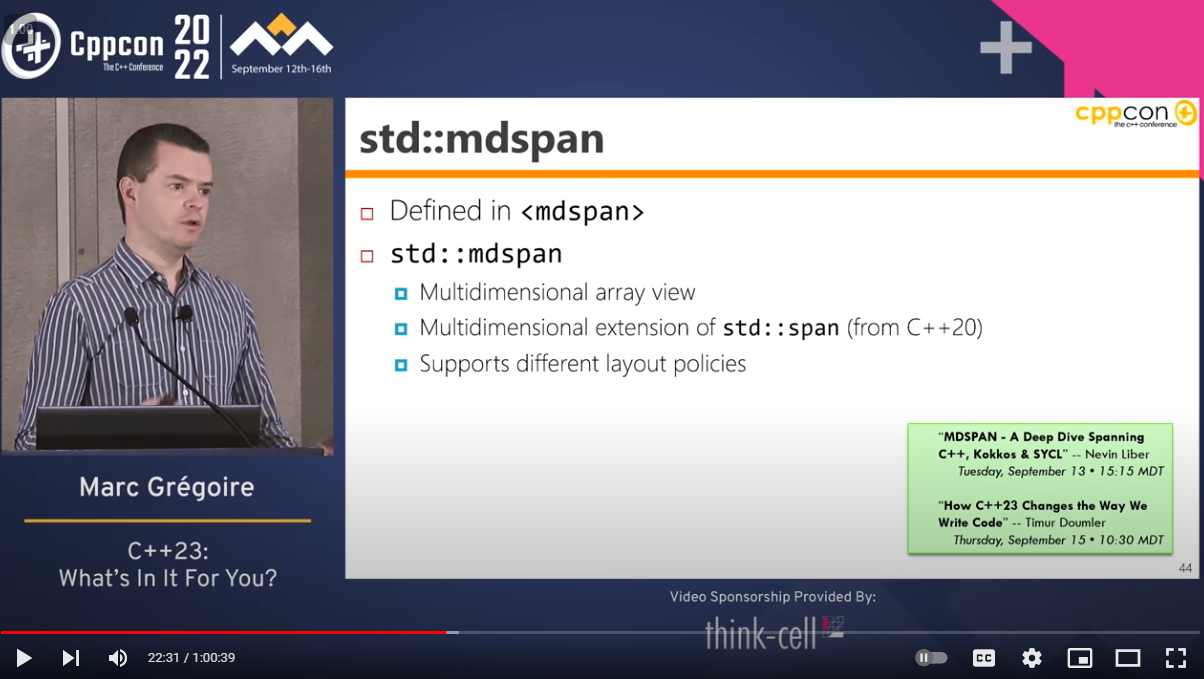Promise-Cpp with Boost.Beast -- Richard Thomson
Utah C++ Programmers has released a new video:
Promise-Cpp with Boost.Beast
by Richard Thomson
From the video description:
Over the past few months, we've looked at asynchronous I/O and network programming using Boost.Asio and Boost.Beast. Those libraries connect to your application through the use of callbacks. When orchestrating a sequence of asynchronous operations, it is up to the application to ensure that the callbacks are invoked in the proper sequence.
This "callback hell" problem has long been recognized in the JavaScript world, as all I/O operations in JavaScript (timers or XML HTTP Requests) are asynchronous. In the JavaScript world this lead to promise oriented APIs that allowed for a more linear notation in expressing a sequence of asynchronous operations. This led to the Promises/A+ specification for JavaScript promises.
Promise-cpp is an implementation of the Promises/A+ specification for C++. It can integrate with Boost.Asio and Boost.Beast for asynchronous network programming support for low-level I/O as well as HTTP and WebSocket APIs.

 Registration is now open for CppCon 2023! The conference starts on October 1 and will be held
Registration is now open for CppCon 2023! The conference starts on October 1 and will be held  Registration is now open for CppCon 2023! The conference starts on October 1 and will be held
Registration is now open for CppCon 2023! The conference starts on October 1 and will be held  Registration is now open for CppCon 2023! The conference starts on October 1 and will be held
Registration is now open for CppCon 2023! The conference starts on October 1 and will be held  Registration is now open for CppCon 2023! The conference starts on October 1 and will be held
Registration is now open for CppCon 2023! The conference starts on October 1 and will be held